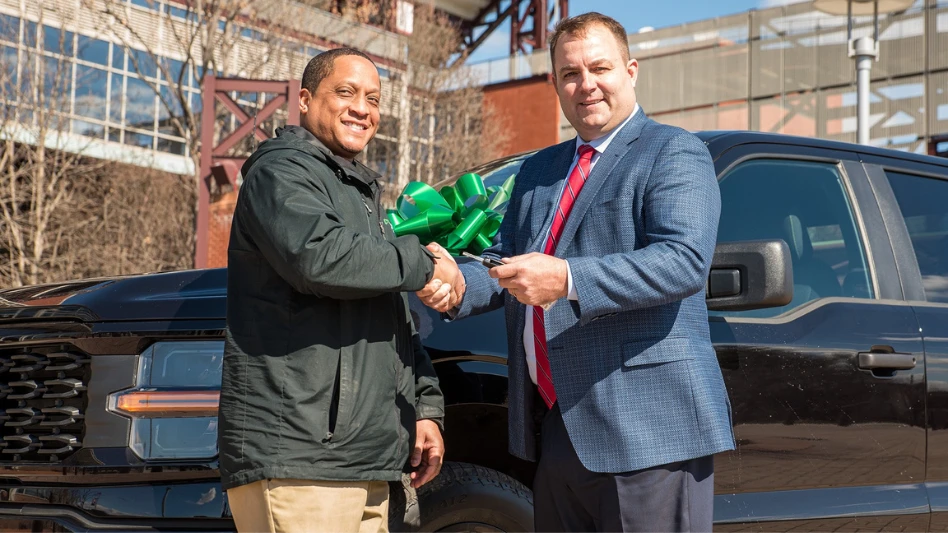The sales season for snow removal work can get quite hectic for contractors. New clients are being wooed. Existing clients are getting re-signed. Deals are getting done. It’s easy to overlook the avoidable mistakes that can hit a snow contractor where it hurts most – the bottom line. Here are some tips as you prepare for the upcoming 2007-08 snow selling season.
MISGUIDED SALES FORCE. Before clients sign contracts, snow contractors need to determine just what portion of the market they hope to serve in the coming snow season.
For example, maybe your particular snow operation is best equipped to handle small- to medium-sized retail parking lots, but not the local Wal-Mart. Or, you’ll stand to make a bigger profit bidding on a contract for the local community college rather than wasting your time and resources plowing a condo community’s small parking lot.
Often a sales person will want to go out and sign everyone and every job they can for the coming winter. And they can’t be blamed for their actions, because that’s what a sales force does. However, a snow contractor needs to educate them on the operation’s strengths and weaknesses, as well as the type of clients they should seek, says Justin Gamester, business development manager at Piscataqua Landscaping in Eliot, Maine.
“Find those markets you’re best suited for and go after them instead of dabbling into a little bit of everything,” Gamester says. “Getting into a contract you’re not quite sure about probably means you won’t be making the profit you should in the end.”
One solid method of determining which markets you best serve is to review the snow operation’s performance during past winters. Which contracts were profitable? What jobs cost more time and resources to maintain than they were worth? These considerations allow a contractor to zero in on the jobs his operations and capabilities can best exploit.
THE OVER PROMISE. Every snow contractor is aware of the dog-eat-dog nature of the industry. Likewise, the sales force will want to move fast to secure a contract. To facilitate a client signing on your dotted line and not a competitor’s, assurances and services are offered that may prove to be undeliverable or not feasible for the snow contractor when winter arrives.
The tried and true mantra of the snow industry is to not push someone’s snow for free. Overselling drastically cuts into profits and is not a sound method of acquiring new business, most snow contractors warn.
“Often salesmen go out and sell a client by saying they can do this or that without checking with operations first,” says Roger Nair, president of NLCI Land Management based in Brunswick, Ohio “Or they’ll quote a client costs before considering all the information for the job. In the end, you end up losing money.”
Contractors suggest briefing sales people on what is allowed as a sales incentive. Any new approaches to pricing, additional services or altering established snow removal policies should be first cleared by management before being added to a contract.
MISSING DETAILS. Sometimes a client will provide his property’s unique specifications, but will not include every detail a contractor requires to fulfill the contract. It’s important for sales to ask questions about jobsite specifics prior to sealing the deal. It’s those details a contractor doesn’t know about that can financially hurt the company at winter’s end.
“Often a client is signed but the details of the job are thin or sparse,” Nair says. “For example, the contract just says “deicer” but it doesn’t specify whether that’s calcium chloride or rock salt. The difference may not make a job as efficient or profitable.”
Snow contractors should establish check lists for their sales people to review with each client before a contract is signed. This list should cull specific data that can impact pricing, reveal the amount of deicing materials needed for the job, as well as the specifics on the scope of the service expected by the client.
POOR RELATIONSHIPS. Most snow contractors admit poor communications is often the culprit of sales snafus. Good communication stems from solid relationships between the snow contractors and clients. The sales force is often the first delegate between the two entities that begins the groundwork for relationship building.
Misinterpretation of needs comes from a lack of face-to-face communication, says Scott Hutchings, operations manager for Grant and Power Landscaping in West Chicago, Ill.
“This doesn’t come from the first phone call or the first meeting,” Hutchings says. “Eventually you build on that and you get to the point where you can ask the questions and voice your concerns to the client.
“Assuming anything without asking all the questions is the wrong way to do business,” he adds. “Sales needs to get everything straight before jumping into a contract feet first.”

Explore the May 2007 Issue
Check out more from this issue and find your next story to read.
Latest from Lawn & Landscape
- North by Northwest's charitable act for the Ronald McDonald House Charities
- Coxreels expands V-100 Series product line
- Landscape Workshop expands with 2 acquisitions
- Wilson360 adds Daniel Grange as new consultant
- Batman and business
- CH Products releases new tree stabilizer
- Savannah Bananas founder Jesse Cole to speak at Equip Exposition
- Catch up on last year's Benchmarking report





